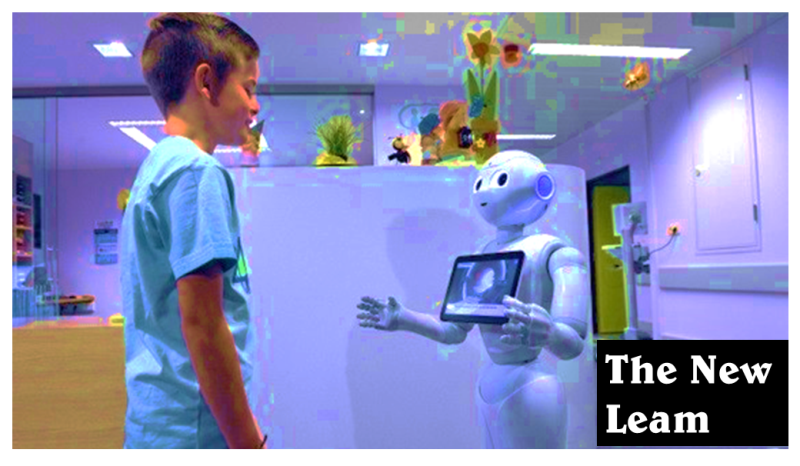TECHNOLOGY
The Chinese culture is immensely fascinated by technological solutions; the latest robot iPal is designed to compensate the lack of human company in a lonely society.
Kabir | The New Leam
 In China robots have been assigned the task of taking care and entertain children. The lack of human time and opportunity to take care of children and give the human warmth has led to the production of a unique robot that is as tall as a five year old and is programmed to dance and teach students. It speaks two languages, gives math lessons, tells jokes and interacts with children through the tablet screen in its chest .China’s latest robot is considered as the only support the child will need.
In China robots have been assigned the task of taking care and entertain children. The lack of human time and opportunity to take care of children and give the human warmth has led to the production of a unique robot that is as tall as a five year old and is programmed to dance and teach students. It speaks two languages, gives math lessons, tells jokes and interacts with children through the tablet screen in its chest .China’s latest robot is considered as the only support the child will need.
The “iPal” is the new robot released at the Consumer Electronics Show Asia, Shanghai this week. Ipal gives education and company to lonely children and peace to adults.
The humanoid device stands as tall as a five-year-old, it can move and dance and its eyes keep supervising the learner through facial recognition technology. This device enables guardians to keep a watch on the activities of the children. Parents can talk to and monitor children through the iPal, the robot is linked to a smartphone app that enables them to see and hear their children.
“The idea for this robot is to be a companion for children,” said Tingyu Huang, co-founder of Avatar Mind Robot Technology. “When a child sees it, he or she will think of the robot as a friend, as another child in the family. “They’re pretty cute”
The paradox of the issue is that children are nurtured by human company and the warmth of parents but in this context it is being assumed that a robot is sufficient to replace a human’s presence. The lonely children of China may get excited over the robot and enjoy dealing with it for several months but in the course of time it is the parents who have to be accountable for nurturing and bringing up children.
What must also be acknowledged is the fact that robots do not replace human sentiment, guardian’s guidance, a sister’s warmth and a brother’s care. It is significant to think beyond mechanical alternatives to cultural issues.














